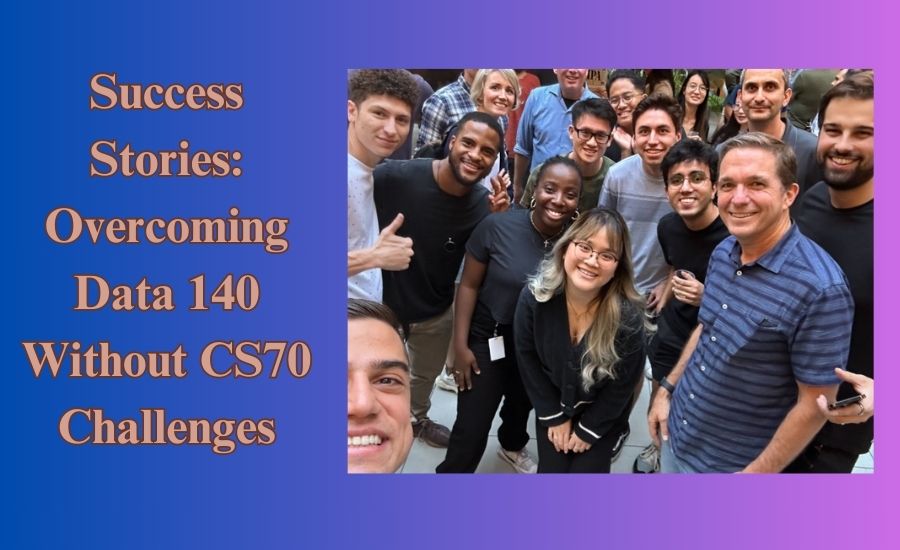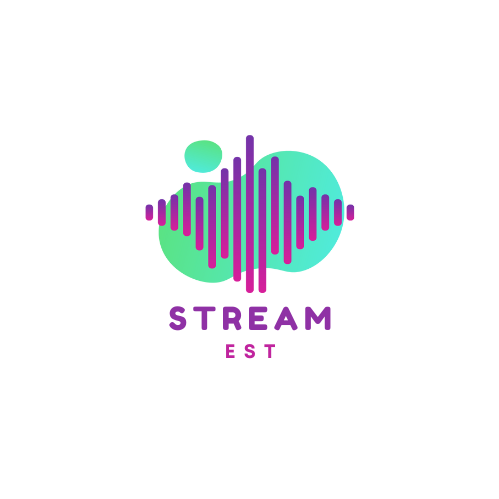Navigating Data 140 without CS70 can seem like a daunting challenge, especially if you’re missing the foundational computer science knowledge typically covered in CS70. Data 140, known for its in-depth exploration of advanced statistical methods and data analysis techniques, becomes significantly more approachable once you understand how to bridge the gaps left by not having taken CS70. Whether you’re a data enthusiast or a professional looking to expand your skills, tackling Data 140 without CS70 requires a strategic approach and the right resources.
Fortunately, succeeding in Data 140 without CS70 is entirely achievable with the right strategies. By leveraging targeted self-study, engaging with online resources, and applying practical experience, you can overcome the knowledge gaps and excel in the course. This guide will walk you through essential techniques to bridge these gaps, share real-world success stories, and provide practical tips for mastering Data 140 without a CS70 background.
Introduction to Data 140 Without CS70: What You Need to Know
Data 140 without CS70 can seem like a daunting challenge, especially if you haven’t completed the foundational course in computer science. Data 140 is designed to teach advanced topics in statistics and data analysis. It covers complex subjects such as probability theory, statistical inference, and machine learning, which can be tricky without a solid grounding in basic computer science concepts. CS70 provides essential knowledge in algorithms, data structures, and discrete mathematics, which are crucial for understanding the more advanced material in Data 140.
Without the CS70 background, you may find it difficult to grasp some of the core concepts in Data 140. For example, understanding how algorithms work and how they are applied to statistical models can be challenging if you haven’t studied these basics. This gap in your knowledge might lead to slower progress and increased frustration. However, with the right strategies and resources, it is still possible to succeed in Data 140. You can supplement your learning with additional materials and support to fill in the gaps and make the most of the course.
Why Data 140 Without CS70 Can Be Challenging
Data 140 without CS70 presents unique challenges due to the absence of foundational computer science knowledge. CS70 introduces critical concepts such as algorithms, which are essential for efficient data manipulation and analysis. Without this background, you might struggle with understanding and applying these algorithms in Data 140. This can make complex statistical methods and data analysis techniques harder to follow.
In Data 140, you will encounter advanced topics that build on the principles learned in CS70. For example, the course may involve working with large data sets and applying sophisticated algorithms to derive insights. Without the foundational knowledge from CS70, you may find it difficult to handle these tasks effectively. The assumptions about your prior knowledge can create a steep learning curve. To overcome this, you should actively seek additional resources and practice to bridge the knowledge gap and enhance your understanding of the course material.
Understanding the Core Concepts of Data 140 Without CS70
Understanding the core concepts of Data 140 without CS70 requires extra effort in grasping advanced topics like probability, statistical inference, and machine learning.
Probability Theory
Probability theory helps in making predictions based on data. It provides the tools to measure the likelihood of different outcomes and is essential for data analysis. Without CS70, you may need to spend additional time learning the basics of probability to understand how it applies to real-world data problems.
Statistical Inference
Statistical inference involves drawing conclusions from data samples. This process includes hypothesis testing, confidence intervals, and other methods that help in making informed decisions based on data. Without a background in CS70, understanding these techniques might be challenging, so focus on resources that explain these concepts in a simple and clear manner.
Machine Learning
Machine learning, a significant part of Data 140, involves using algorithms to analyze and interpret complex data sets. It includes supervised learning, unsupervised learning, and other techniques to build models that can make predictions or uncover patterns. To grasp machine learning effectively, you should familiarize yourself with the underlying mathematical concepts and algorithms.
Without CS70, you might not have a strong background in the mathematical and computational principles that underpin these concepts. This lack of foundational knowledge can make it harder to understand how these methods work and how to apply them effectively. To bridge this gap, consider using online resources, textbooks, and tutorials that cover the essential principles of algorithms and discrete mathematics. Developing a solid understanding of these basics will help you tackle the advanced topics in Data 140 more effectively.
How to Fill the Knowledge Gap Left by Skipping CS70
To succeed in Data 140 without CS70, it’s essential to actively address the knowledge gap by focusing on key areas. Start by identifying the specific concepts from CS70 that are relevant to Data 140. Then, seek out online courses, textbooks, and tutorials that cover these concepts. Platforms like Coursera and edX offer courses on algorithms and data structures, which can provide the foundational knowledge you need.
In addition to formal resources, practice problem-solving and coding exercises related to these concepts. Websites like LeetCode and HackerRank offer coding challenges that can help reinforce your understanding of algorithms and data structures. Regular practice and self-study will help you build the skills needed for Data 140. By taking these proactive steps, you can bridge the knowledge gap and improve your performance in the course.
Essential Skills for Data 140 Without CS70
To excel in Data 140 without CS70, it’s crucial to develop essential skills in the following areas:
- Statistical Analysis: Understand and apply various methods to accurately interpret data. This includes knowing how to use statistical tools and techniques to analyze data sets and draw valid conclusions.
- Data Interpretation: Develop the ability to draw meaningful insights from data sets. Being able to interpret results and make sense of data trends is a key focus of Data 140.
- Programming Skills: Learn to use programming languages like Python or R for data analysis. Practice writing code for tasks such as data manipulation, analysis, and visualization.
- Mathematical Foundations: Gain a solid understanding of fundamental mathematical concepts, including probability, statistics, and discrete mathematics. This knowledge is vital for understanding and applying advanced data analysis methods.
- Algorithmic Thinking: Build skills in problem-solving and algorithmic thinking to tackle complex data problems. Understanding algorithms helps in efficiently processing and analyzing data.
- Data Visualization: Learn how to create clear and informative visual representations of data. Effective data visualization helps in communicating findings and insights.
- Critical Thinking: Develop the ability to critically evaluate data and analysis methods. This skill is essential for assessing the validity of results and making informed decisions based on data.
By developing a strong foundation in these areas, you will be better equipped to tackle the coursework in Data 140 and apply the concepts you learn more effectively.
Comparing Data 140 Without CS70 and CS70: Key Differences

To effectively understand the distinctions between Data 140 without CS70 and CS70, it’s important to recognize how each course contributes uniquely to your education. Here’s a comparison of their key differences:
| Aspect | Data 140 Without CS70 | CS70 |
| Focus | Practical data analysis, statistical methods, and machine learning. | Theoretical foundation in computer science, including algorithms, data structures, and discrete mathematics. |
| Objective | Apply techniques to real-world problems and analyze complex data sets. | Understand the principles behind computer science concepts and their application to various problems. |
| Course Orientation | Application-oriented, focusing on how to use data analysis tools and methods. | Theoretical, focusing on understanding core computer science principles. |
| Content | Emphasizes data analysis, probability, and machine learning. | Covers algorithms, data structures, and formal logic. |
| Complementary Role | Builds on practical skills needed for data science. | Provides a solid theoretical background that supports understanding and applying concepts in Data 140. |
Both Data 140 and CS70 are essential components of the curriculum, with each course offering unique insights and skills that complement each other. Data 140 focuses on applying data analysis techniques, while CS70 provides the foundational knowledge necessary for understanding these techniques.
Practical Strategies for Succeeding in Data 140 Without CS70
To succeed in Data 140 without CS70, implement practical strategies to manage your learning and overcome challenges. Start by creating a study plan that outlines specific goals and timelines for your coursework. Break down the material into manageable sections and set aside regular study time to review and practice.
Utilize online resources and tutorials to supplement your learning. Engage with online communities and forums to ask questions and seek advice from others who have taken Data 140. Regular practice and staying organized will help you navigate the course more effectively and build a strong understanding of the material.
Top Online Resources for Data 140 Without CS70
Here are some top online resources that can help you succeed in Data 140 without a CS70 background:
- Coursera: Offers courses on computer science fundamentals, algorithms, and data structures. These courses can help build the foundational knowledge needed for Data 140.
- edX: Provides various courses on algorithms, discrete mathematics, and programming, essential for understanding advanced concepts in Data 140.
- Khan Academy: Features tutorials and exercises on math and computer science topics, which can reinforce your understanding of the principles underlying Data 140.
- Codecademy: Provides interactive coding lessons and challenges in programming languages like Python and R, which are useful for data analysis in Data 140.
- Udacity: Offers nanodegrees and courses on data analysis and machine learning, helping you gain practical skills relevant to Data 140.
- MIT OpenCourseWare: Offers free course materials and lectures on computer science and mathematics that can supplement your learning for Data 140.
- W3Schools: Provides tutorials and references on programming languages and web technologies, which are beneficial for practical aspects of Data 140.
- DataCamp: Specializes in data science and analytics courses, offering hands-on practice in data manipulation and analysis.
Using these resources can help you bridge the knowledge gap and excel in Data 140.
Read More About: Keeper-standards-test
How Self-Study Can Help You in Data 140 Without CS70
Self-study is a valuable approach to succeeding in Data 140 without CS70. By dedicating time to study algorithms, data structures, and other computer science concepts, you can build a solid foundation for the course.
Identifying Key Areas for Study
Start by identifying key areas where you need additional knowledge and focus your self-study efforts on these topics. Understanding these foundational concepts will make it easier to grasp advanced Data 140 material.
Utilizing Resources Effectively
Use textbooks, online tutorials, and practice problems to reinforce your learning. These resources provide essential practice and explanations to deepen your understanding.
Setting a Study Routine
Set aside regular study time to review and practice, and track your progress to stay on track. Consistent self-study will help bridge the knowledge gap and improve your understanding of Data 140 concepts, making it easier to succeed in the course.
Effective Problem-Solving Techniques for Data 140 Without CS70
Developing effective problem-solving techniques is crucial for succeeding in Data 140 without CS70. Start by breaking down complex problems into smaller, manageable parts. Understand the underlying principles and approach each problem step-by-step to find a solution.
Regularly practice solving problems related to Data 140 to build your skills and confidence. Use coding platforms to work on exercises and challenges that align with the course material. By developing strong problem-solving skills, you can tackle the coursework more effectively and overcome challenges in Data 140.
Building a Support Network for Data 140 Without CS70
Building a support network can greatly enhance your success in Data 140 without CS70. Connect with fellow students, join study groups, and seek mentorship from individuals with experience in data science. Engaging with a support network provides valuable insights, resources, and encouragement.
Participate in online forums and communities where you can ask questions, share ideas, and get help with difficult concepts. A strong support network will help you navigate the challenges of Data 140 and provide the support you need to succeed in the course.
Hands-On Projects to Enhance Your Data 140 Without CS70 Experience
Hands-on projects are a great way to enhance your experience in Data 140 without CS70. Working on real-world data analysis projects allows you to apply what you’ve learned and gain practical experience. Choose projects that interest you and align with your career goals.
Document your projects and share them on platforms like GitHub to showcase your skills. Practical experience with data sets and analysis will help you build confidence and improve your understanding of Data 140 concepts. Engaging in hands-on projects will also provide valuable insights into real-world data science applications.
Success Stories: Overcoming Data 140 Without CS70 Challenges

- Jane’s Success Story
- Background: Jane did not have a CS70 background.
- Strategy: She leveraged online resources, engaged with study groups, and practiced regularly.
- Outcome: Jane excelled in Data 140, demonstrating the effectiveness of dedication and resource utilization.
- Alex’s Approach
- Background: Alex started Data 140 without prior knowledge from CS70.
- Strategy: He focused on self-study and attended supplementary workshops to fill gaps in his understanding.
- Outcome: Alex achieved high grades by applying a strategic approach to learning and using additional support resources.
- Sarah’s Journey
- Background: Sarah lacked the CS70 foundation but was determined to succeed.
- Strategy: She actively participated in online forums and sought mentorship from peers who had completed CS70.
- Outcome: Sarah’s proactive engagement and support system helped her overcome difficulties and perform well in Data 140.
- Michael’s Experience
- Background: Michael entered Data 140 with no CS70 coursework.
- Strategy: He used a combination of online courses and textbooks to build a strong foundation in necessary topics.
- Outcome: Michael’s comprehensive preparation and continuous effort led to significant success in the course.
Career Opportunities with Data 140 Without CS70 Knowledge
Having knowledge of Data 140 without CS70 opens up various career opportunities in data science. Roles such as data analyst, business analyst, and data consultant are well-suited for those with a strong understanding of data analysis and statistical methods.
These positions focus on interpreting data and providing insights to inform business decisions. By leveraging the skills you acquire in Data 140, you can pursue rewarding careers that emphasize data analysis and communication, even if you missed out on CS70.
Final Tips for Excelling in Data 140 Without CS70
Here are the final tips in points for excelling in Data 140 without CS70:
- Create a Study Plan: Organize your study schedule to cover key topics systematically.
- Utilize Online Resources: Leverage platforms like Coursera, edX, and Khan Academy to supplement your learning.
- Practice Problem-Solving: Regularly work on practice problems to sharpen your skills and reinforce concepts.
- Build a Support Network: Join study groups or forums to collaborate and get help from peers.
- Gain Hands-On Experience: Engage in projects or real-world applications to apply what you’ve learned.
- Stay Proactive: Keep up with course materials, and don’t hesitate to seek help when needed.
- Remain Dedicated: Consistent effort and use of resources will help you succeed in Data 140 without CS70.
Conclusion
In conclusion, taking Data 140 without CS70 can be challenging, but it’s definitely manageable with the right approach. By understanding the core concepts, using online resources, and practicing regularly, you can overcome the hurdles that come with missing CS70. It’s important to stay organized and seek support when needed, so you don’t feel overwhelmed.
Remember, many students have succeeded in Data 140 despite not having CS70. With determination and the right tools, you can excel in this course and make the most of the learning opportunities it offers. Stay positive, keep working hard, and you’ll be able to tackle Data 140 confidently.
Read Next About: Windstream-email
FAQs
Q: Can I succeed in Data 140 without taking CS70?
A: Yes, you can succeed in Data 140 without CS70. Focus on learning the key concepts of algorithms and data structures on your own to bridge the gap.
Q: What are the key areas I need to study for Data 140 without CS70?
A: You should study algorithms, data structures, and basic computer science principles to help you understand Data 140 concepts better.
Q: How can I find additional resources for studying algorithms and data structures?
A: Use online platforms like Coursera, edX, and Khan Academy to find courses and tutorials on algorithms and data structures.
Q: Are there any specific online courses that can help with Data 140?
A: Yes, online courses on platforms like Coursera and edX that cover computer science fundamentals can be very helpful.
Q: How can I practice problem-solving for Data 140?
A: Practice coding challenges on websites like LeetCode and HackerRank to improve your problem-solving skills.
Q: What should I do if I’m struggling with the Data 140 material?
A: Seek help from online forums, study groups, or tutoring services to get support and clarify any doubts you have.
Q: How can hands-on projects help me in Data 140?
A: Hands-on projects allow you to apply what you’ve learned in real-world scenarios, helping you understand and retain the concepts better.






